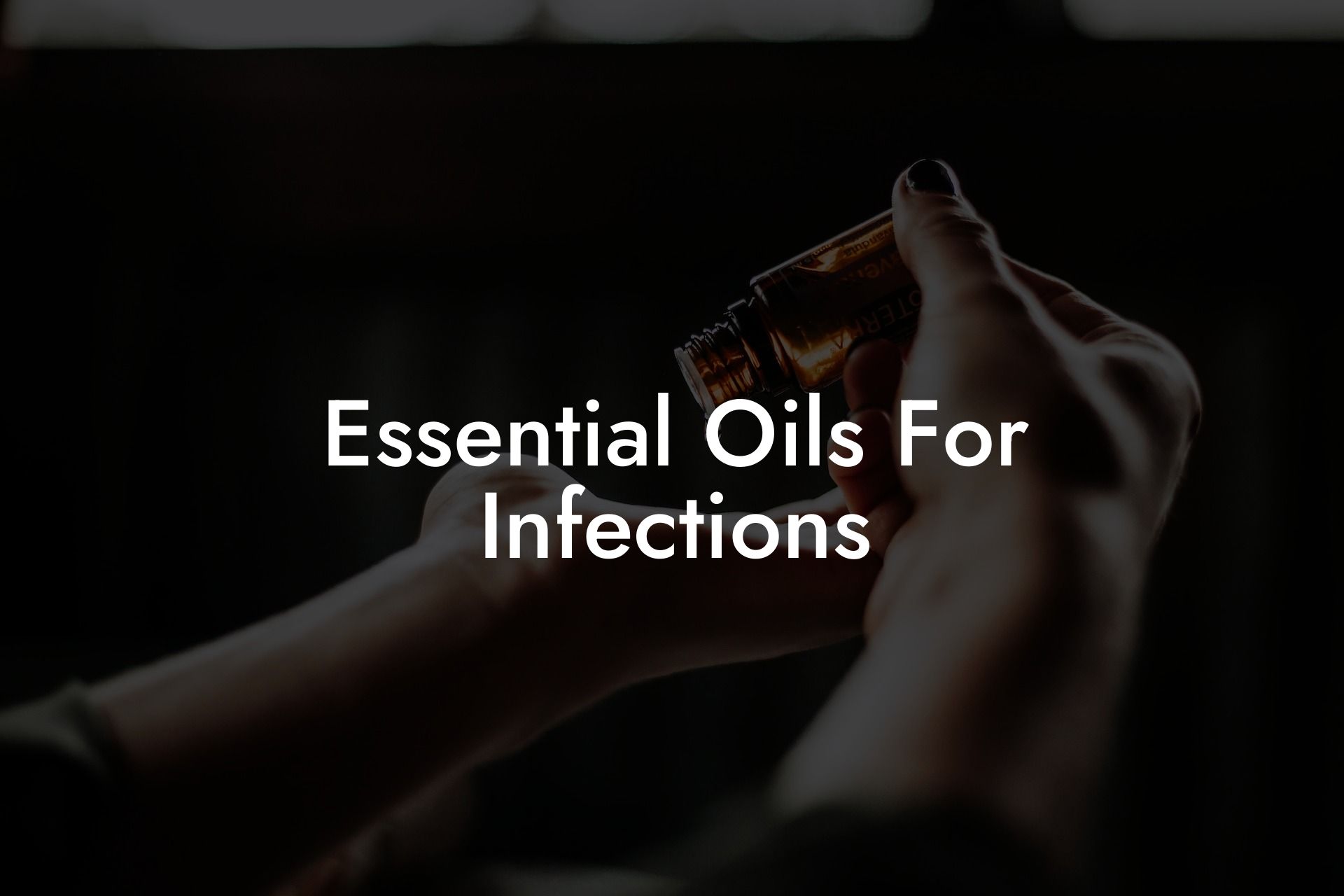Infections can be a major burden on our immune system and overall well-being. Fortunately, essential oils can provide a natural and effective way to fight those unwanted bacteria and viruses. In this article, we will discuss the potent healing properties of essential oils for combating infections, and explore how you can incorporate these natural remedies into your daily wellness routine.
Table of Contents
The Power of Essential Oils Against Infections
Essential oils are concentrated aromatic compounds extracted from plants, offering numerous health benefits. Many of them possess strong anti-inflammatory, antibacterial, antifungal, and antiviral properties, making them a potent solution for treating various types of infections.
Here are some of the most effective essential oils for combating infections:
Tea Tree Oil
- Renowned for its powerful antiseptic properties
- Proven effective against bacteria, fungi, and viruses
- Highly effective for treating skin infections such as acne and fungal infections like athlete’s foot
Eucalyptus Oil
- Known to have antimicrobial and antiviral properties
- Commonly used for respiratory infections like sinusitis, bronchitis, and pneumonia
- Helps to clear blocked airways and promote better breathing
Oregano Oil
- Contains carvacrol and thymol, which are potent antibacterial and antifungal agents
- Effective in treating bacterial infections such as urinary tract infections and sinusitis
- Helpful for combating fungal infections like Candida overgrowth
- Offers powerful immune system support
Lavender Oil
- Offers calming properties along with antimicrobial effects
- Particularly useful for skin infections, cuts, and burns
- Helps to promote wound healing and prevent bacterial infections
How to Use Essential Oils for Infections
Using essential oils for infections involves various methods, depending on the type of infection and personal preferences.
Topical Application
- Before using any essential oil directly on the skin, it is crucial to dilute it with a carrier oil like coconut, almond, or jojoba
- Apply the diluted oil on the affected area or on the soles of the feet to promote absorption
- For skin infections, it is recommended to test a small area first to ensure there is no adverse reaction
Inhalation
- Diffuse essential oils in a room or breathe in the aroma directly from the bottle
- This method is particularly helpful for respiratory infections
Oral Consumption
- Some essential oils, like oregano, can be consumed orally
- Always consult a certified aromatherapist, naturopath, or healthcare provider before ingesting any essential oil
Essential Oils For Infections Example:
Imagine having a persistent skin infection that hasn’t responded well to conventional treatments. By researching essential oils and their benefits, you decide to try tea tree oil. After diluting it with a carrier oil, you apply the mixture to the affected area twice daily. Within a few days, you start to see improvements in the infection site, and it eventually clears up without any side effects.
In summary, essential oils offer a natural and comprehensive approach to treating various types of infections. By educating oneself and using these powerful botanical extracts safely and responsibly, you can effectively boost your immune system and overall well-being. Don’t forget to share this valuable information with your friends and family, so they can benefit from these natural remedies as well. Explore other essential oil guides on Oshu Oils’ blog to enhance your knowledge about these healing substances, and browse through our collection of meticulously crafted Oshu Oils to find the perfect solution for your needs.





















